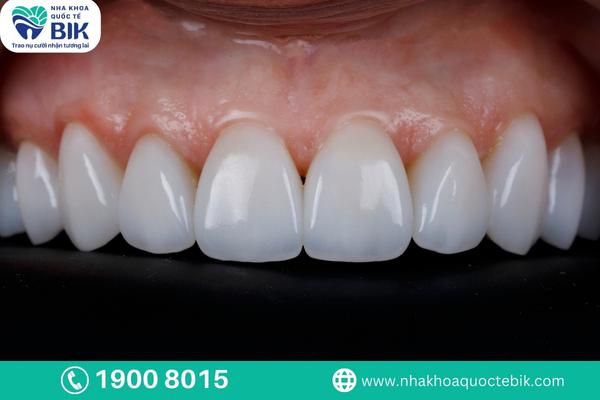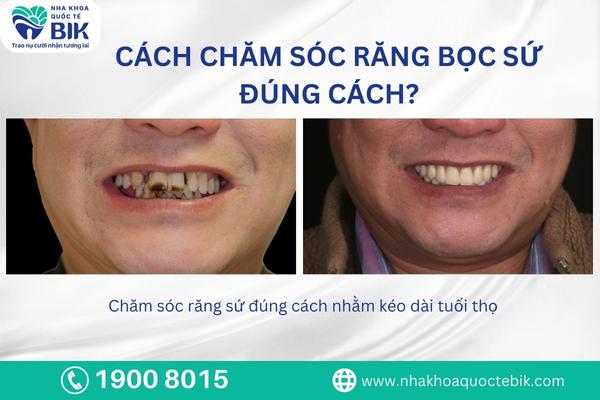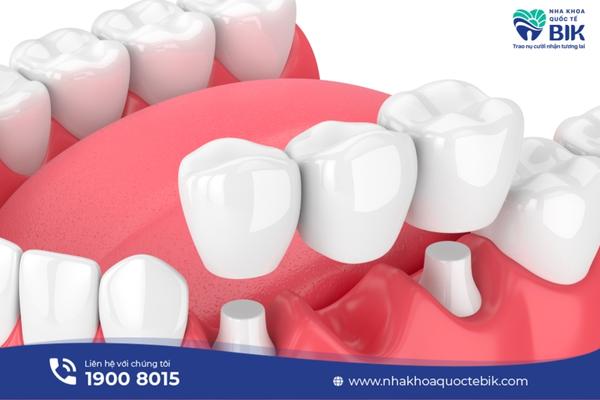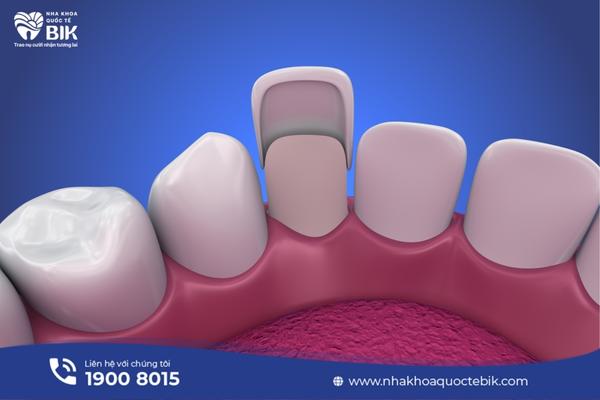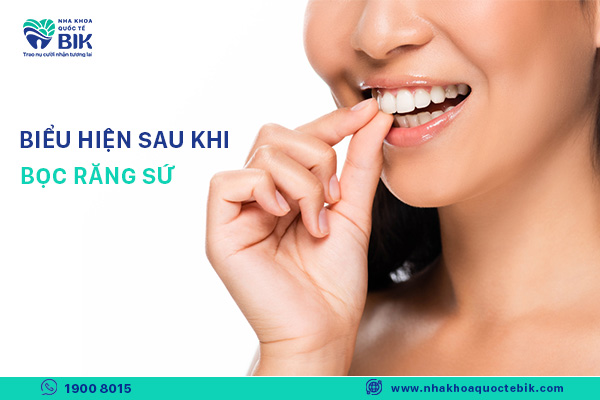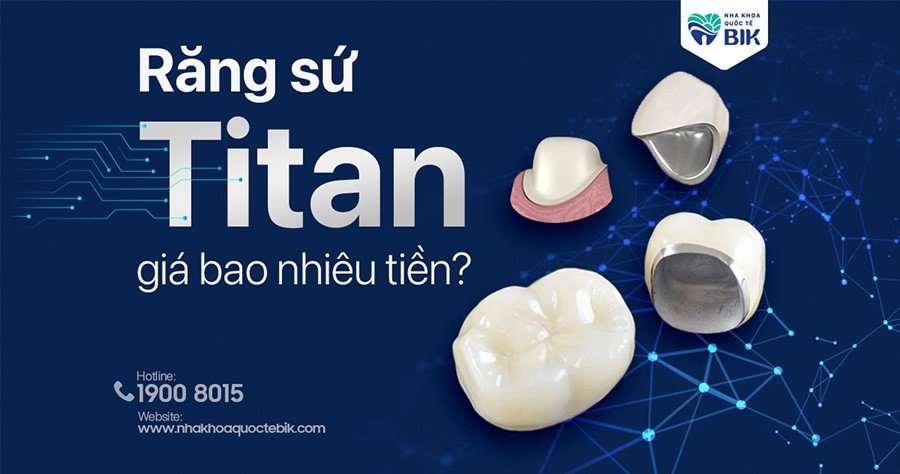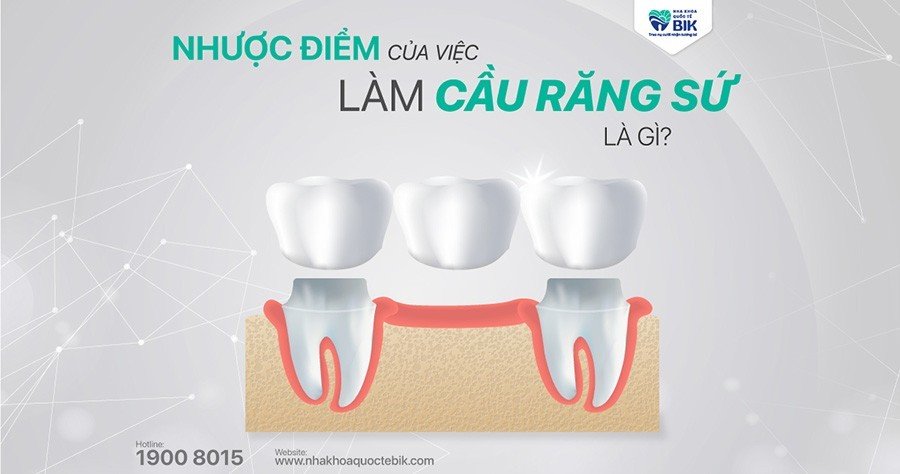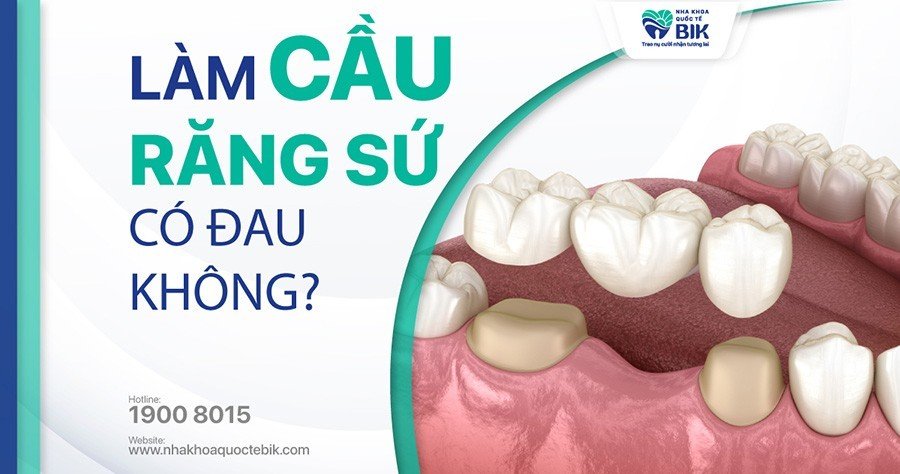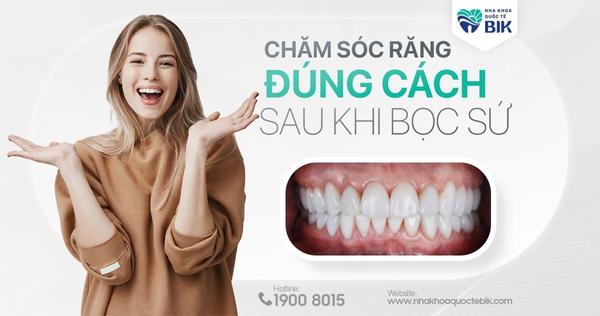
The porcelain crown process requires grinding the real tooth stump to support the porcelain crown above, so the real tooth at this time becomes very sensitive and easily irritated. So how to protect both real and porcelain teeth from damage, this is an issue that many people are interested in. Let’s learn about how to properly care for porcelain crowns with BIK International Dental Clinic in the article below!
1. How long can porcelain crowns be used?
How long porcelain crowns can be used depends on the following factors:
1.1. Type of porcelain crowns
Currently, there are 3 popular types of porcelain crowns on the market:
1.1.1. Metal Porcelain Teeth
As one of the earliest types of porcelain teeth, metal porcelain teeth have a frame made from Chromium – Cobalt or Chromium – Nickel alloy and are covered with a layer of bright porcelain on the outside. Thanks to that, metal porcelain teeth can withstand the biting force quite well and at the same time bring quite high aesthetics. However, the metal component in this type of porcelain teeth will be oxidized in the oral environment after only 2-3 years of use, causing the gum line to turn black. At this time, customers will have to re-cover the porcelain teeth to overcome this situation.
1.1.2. Titanium metal ceramic teeth
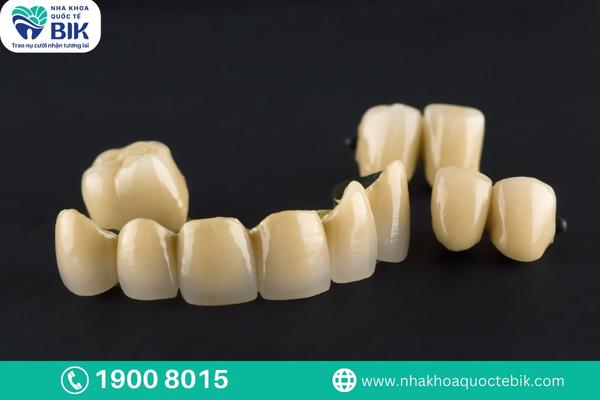
The structure of Titanium metal ceramic teeth is similar to that of metal ceramic teeth, the difference is that the inner frame is made of Titanium. This is a material that is widely used in medicine because it has been tested to be completely benign and does not cause irritation to humans. However, because it is still metal, the color of Titan teeth is not like real teeth but will show a black light when exposed to light. Thanks to the Titanium material, the lifespan of this ceramic tooth can last about 5-10 years.
1.1.3. All-ceramic teeth
As the name suggests, this type of porcelain teeth is made 100% from high-grade ceramic materials and does not contain any metal compounds. Therefore, not only is it durable and has good resistance, but all-ceramic teeth can also bring a beautiful, natural white color like real teeth.
The lifespan of all-ceramic teeth is up to 25 years and can be permanent if well cared for.
1.2. Oral health
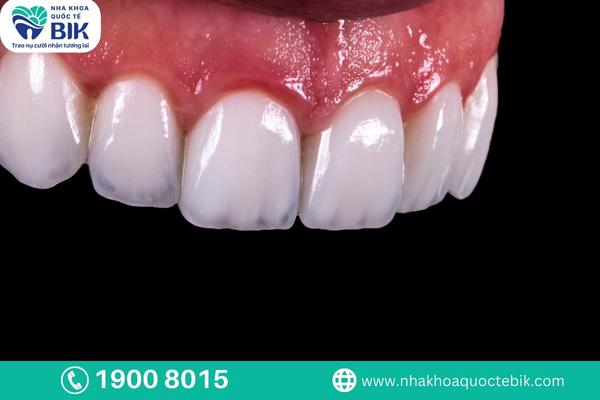
The lifespan of porcelain teeth is also closely related to the oral health when covering them with porcelain teeth. In cases where customers need to cover porcelain teeth after root canal treatment or severe tooth decay, porcelain teeth cannot have the desired lifespan because the tooth stump has become weaker at this time.
1.3. Doctor’s skills
If the doctor’s skills and expertise are not high, the grinding and porcelain crown operations may be inaccurate, causing the porcelain crown position to be misaligned, causing discomfort and gaps between the tooth roots. This gap is a very favorable environment for bacteria to grow when food is left behind. At this time, bacteria attack, causing tooth roots to wear down, become damaged, and the life of porcelain teeth cannot be extended.
1.4. How to care for your teeth after porcelain crowns
The longevity of porcelain teeth depends largely on how you care for them after porcelain crowns. Therefore, customers should practice proper oral hygiene and have a reasonable diet to maximize the longevity of porcelain teeth.
2. Why is it necessary to take care of teeth after porcelain crowns?
Not taking care of teeth after porcelain crowns thoroughly can cause many problems such as:
2.1. Bad breath
In fact, porcelain is an inert material so it will not have a bad smell after a period of use, but bad breath still occurs if customers do not clean their teeth regularly, causing bacteria to grow from food plaque to attack tooth enamel and gums. Among them, there will be some types of bacteria that cause bad breath.
2.2. Oral diseases
If not properly cared for, bacteria can grow and develop, causing gingivitis, periodontitis, tooth decay, etc. If not treated promptly, the pulp may be affected, causing the pulp to become infected and possibly causing tooth death.
3. How to properly care for porcelain crowns?
Here is how to properly care for porcelain crowns to maintain the aesthetics and prolong the life of porcelain crowns. You can refer to the following methods:
3.1. Proper oral hygiene
Brush your teeth at least twice a day with a soft-bristled toothbrush with moderate force to avoid damaging soft tissues and causing bleeding gums.
Replace your toothbrush every 3-4 months so that bacteria do not have a chance to accumulate.
Use toothpaste containing fluoride to help strengthen teeth.
Combine the use of mouthwash and dental floss to remove all food particles from between teeth.
3.2. Build a scientific diet

In the first 1-3 days after porcelain crowns, customers should prioritize choosing soft, liquid foods that do not require too much chewing force such as porridge, noodles, soup, yogurt, …
After the porcelain teeth have stabilized, you should increase the food groups of meat, fish, eggs, milk, shrimp, crab to increase calcium for the body, helping teeth become stronger.
Add foods rich in vitamin C and minerals to your daily menu such as broccoli, tomatoes, oranges, grapefruit, etc. to keep your gums rosy and healthy and prevent possible oral diseases.
Drink plenty of water to remove plaque and clean the oral cavity effectively.
3.3. Do not smoke
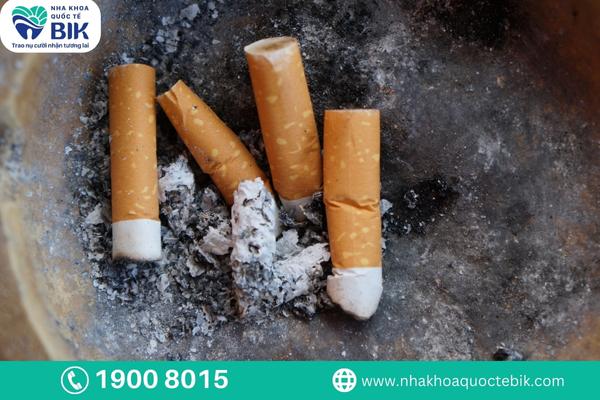
Smoking is the leading cause of yellow and discolored teeth. In addition, the Nicotine component in cigarettes that sticks for a long time will easily damage teeth, causing the porcelain layer to change color. Just brushing your teeth properly every day is also very difficult to remove plaque caused by cigarettes. Therefore, after cosmetic porcelain crowns, customers should minimize smoking to keep porcelain teeth beautiful and durable for a long time.
3.4. Adjusting habits
Although the hardness is similar to real teeth, customers should still pay attention to some habits that can cause teeth to break or chip. Do not use porcelain teeth to open bottle caps, tear packaging, pull clothing tags, etc. For those who have the habit of grinding their teeth while sleeping, they should find a way to overcome it because this habit not only wears down real teeth but can also cause porcelain teeth to be damaged or cracked.
3.5. Regular check-ups
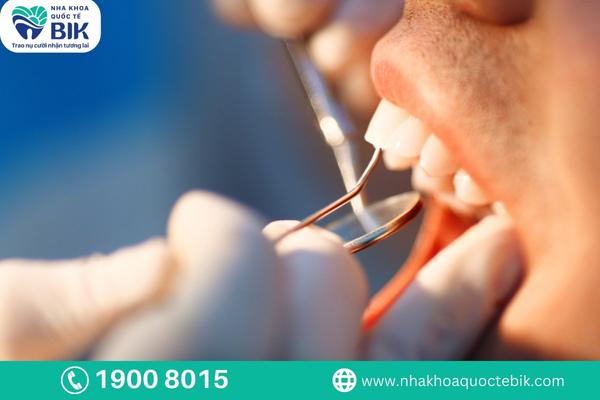
Customers should visit a dental facility about once every 6 months to be able to check the condition of their porcelain teeth and promptly detect and treat other oral diseases if any. In addition, if during the use of porcelain teeth, especially right after porcelain coating, abnormal symptoms such as prolonged pain or sensitivity appear, customers need to go to a reputable dental facility for timely treatment.
4. What should I avoid after having porcelain crowns?
What should I avoid after having porcelain crowns is a question that many people are interested in. Customers should avoid the following foods to best protect their porcelain teeth:
Limit foods that are too hard or too chewy because if you use too much force, both real teeth and porcelain teeth will be damaged.
Limit the use of foods that are too hot or too cold suddenly, especially for those who choose metal ceramic teeth with good thermal conductivity. Because the tooth grinding process makes real teeth sensitive, they are easily irritated and sore.
Reduce foods containing a lot of sugar and fat such as cakes, candies, soft drinks, etc. because these are substances that create an ideal environment for bacteria to grow and attack natural tooth enamel.
So to maintain aesthetics, customers should first consider choosing a reputable dental address to perform porcelain crowns to get the best porcelain crown effect. After that, customers can apply some of the porcelain crown care methods provided above to maximize the life of porcelain crowns.

